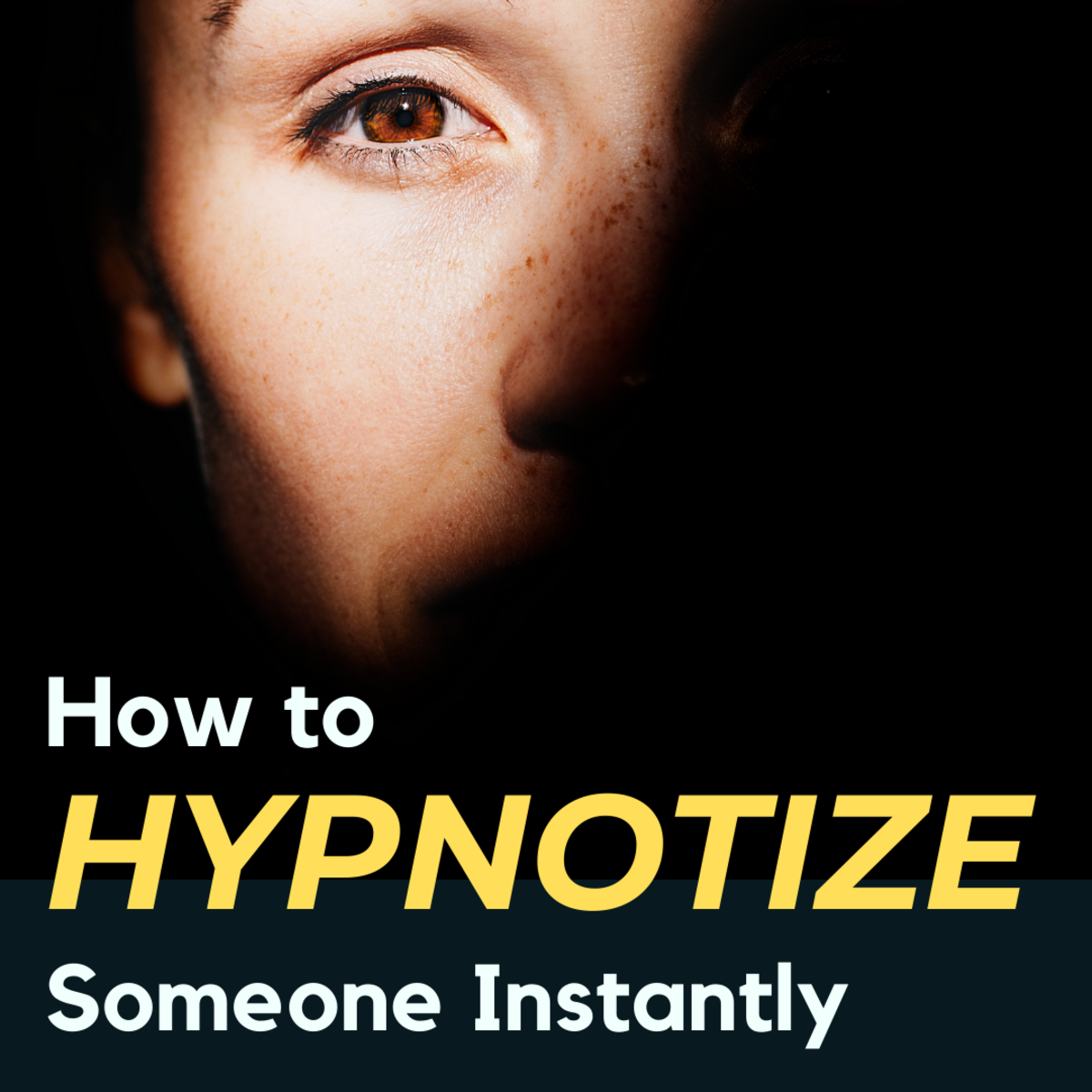Dark Secrets - Research Paper

Hello My Friends
I feel as if it has been forever! My life has been nothing but work and classes these past 5 weeks. I've returned to school (online) AGAIN to try to finish my Bachelor's degree. Only a year to go...
I finished my paper in my Research and Writing class last night, and I thought it might make a good hub. A little formal in style of course, but at least I won't be accused of plagiarism! I tried to pick a topic in the beginning of class that I could use for a hub when I was finished.
I'll be around to read all of you, I'm starting tonight - I've so missed that writing from the heart from my dear friends. I hope I didn't miss too much. Please catch me up - you know how to get in touch with me.
Love to you all,
Erin
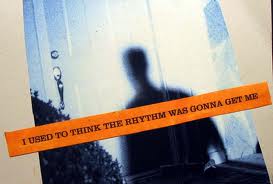
Dark Secrets
Everyone has at least one secret; something they would rather not have known to the general public, or anyone for that matter. It could be an opinion; something foolish they have done; a fear; a belief; or something darker they keep inside. That secret longs to see the light of day. It is a fact that if you tell yourself not to focus on that secret and to think of something else, you will think of nothing but that. Just try it…think of your own secret. Researcher Daniel Wegner says, "People will tend to misread the return of unwanted thoughts. We don't realize that in keeping it secret we've created an obsession in a jar." There are many reasons for disclosing secrets and many to keep them inside; an intricate thought process goes into play when a person thinks of revealing something so personal. This paper will explore the world of secrets; their power to heal and to harm. We’ll ponder the question on whether it is better to disclose or not disclose. What are the benefits and the risks? Let’s dive into that world, keep our own secrets close and at the end, reach a decision about what to do with them! (Jaffe, 2006)
“A stream of hooded figures descended down the wooded trail across the mountain from Josef; they were aided only by the light of their lanterns. Leaves and sticks crackled beneath their feet as they slowly made their way, careful not to slip into the bark of an ancient oak. Josef found the fire circle below abandoned every morning, with the fire bed still warm. These were the secret visitors. Where did they come from? Why did they dress in cloaks with hoods? And why did they come here, of all places? Josef’s father was given this land, and these are their sacred hunting grounds. Josef didn’t know that what he would see that night would change his life forever.”
This brave warrior seems to have stumbled upon a secret society of some kind. Sneaking around under the cover of night, they conduct their business unaware they have a witness. And that is the way it is for someone with something to hide. According to the dictionary definition, a secret is information, events, methods, or plans kept hidden by a person or small group; if it is disclosed, it is to a trusted few or those who need to know. Once it is “common knowledge” or known by more than that select few; it’s not a secret anymore. Benjamin Franklin said, “Three can keep a secret, if two of them are dead.” (Brainy Quotes, 2011).
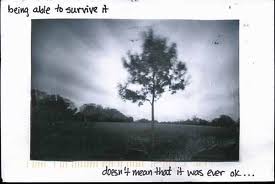
Secrets carried deep inside are usually the most traumatic. These secrets shape lives, affect decisions, shadow happiness and ruin self-esteem. Memories can fester in the dark, like a silent wound that never actually heals; a time bomb that sits in the abdomen, waiting to go off, and all the while seeping corrosive material into the body - eating it from the inside out. Most dark secrets involve at least one other person, and opening up can start a whole chain of events in others’ lives. This knowledge may have kept the secret-keeper silent in pain, guilt, shame and suffering alone for many years. These secrets can cause feelings of shame, regret, loneliness, humiliation, and loss. These symptoms of keeping secrets mirror those of one suffering from depression. (NIMH,2011)
Secrets can’t cause this psychological depression and loneliness when they aren’t secret anymore. Reaching out from the web of darkness, takes great thought and courage. One of two things can happen. That fear is realized, the world does cave in or the one who opens up finds a “safe environment”. A “safe environment” is one free from harm, physically or psychologically. In this case, it also refers to a place of trust and where the secret is respected, which gives a sense of security and well-being.
In a research paper addressing women who were the victims of childhood sexual abuse, the subject of the causes and effects of revealing secrets was explored. Disclosure, with a therapist (i.e. in a safe environment) proved to be extremely beneficial. Feelings released during work on this sensitive subject included humiliation, fear of further embarrassment, guilt, and blame. Surprisingly, women reveal more to strangers than with an intimate partner because they feel safer. Even with a supportive partner, they feel a sense of vulnerability where there is a chance of misunderstanding, further embarrassment and humiliation. When someone has a secret to share, they will mentally perform a background check on all eligible recipients. (Farber, Khurgin-Bott , & Feldman, 2009)
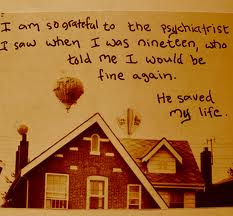
In the beginning of therapy, women still fear sharing secrets; the threat of exposure and consequences are still very real. A lot of anxiety is wrapped up in the belief that “opening up means exploitation”. Even in a “safe environment”, victims relive traumatic experiences to learn new ways of coping and fighting back. This will hopefully lead to closure. Eventually, the gains far outweigh the temporary pain. Benefits can be: better relationships, increased self-awareness, self-esteem, overall happiness, and being able to look back without reliving the abuse. (Farber, Khurgin-Bott , & Feldman, 2009)
Who passes the background check when it comes to revealing secrets? Many have learned lessons on taking this decision lightly in the past. There is a process to go through when choosing a recipient. Several questions should be asked before approaching the target with our secret. Think of the government…it doesn’t trust just anyone with its secrets. Only those who have a clean public record, have a fairly decent credit record, and lay open their lives on a 17-page questionnaire are considered for investigation. From there they do the background check to determine eligibility to keep the nation’s secrets. (Rada, 2011) A person’s mind should have such a system for security when revealing its own closely held information! Yet everyone goes through some kind of internal process to protect themselves from the fallout when considering the disclosure of sensitive personal information.
How secret is it? What would the consequences be if this were to be published in the morning paper? What will reactions be? Has the need for secrecy expired? Is it more important to seek help in coping or to waste a life laden with this heavy secret? What harm would it do if it were to get out? Is releasing this information the responsible thing to do? Who should be the recipient? Should a professional, non-judgmental person be there to help? Is this something the authorities or law enforcement should know? Is there work required that revealing the secret will uncover? What are the consequences? (Caughlin, Afifi & etal, 2005)

The other side of this is the inability to open up, or reach out. A paralysis can exist with a secret believed to be so dark, so shameful, so humiliating, or guilt-ridden that it freezes its victim from letting it go. In some cases, revealing a secret could mean confessing to a crime or heinous act. In this case the consequences would be a fine, divorce, losing a job, life in prison, or possibly the death penalty. How hard is it to keep a secret like that? Can anyone be trusted?
The bad side of guilt, shame, regret, humiliation, etc. of keeping secrets is the inability to reach closure. A healthy person can plan for the future, set reasonable goals and know when to disengage from them. A person weighed down with a heavy secret is unable to do this (known as the Zeigarnik effect). Zeigarnik proved that people obsess over their failures more than their accomplishments. One way to get people to reveal their secrets is to have them focus on the end goal of reaching a healthy lifestyle. (Kelly, 1999)
More shame and humiliation is the worst fear of a person with a dark secret. An imagined negative reaction through sharing of an illegal or immoral act can be paralyzing as well. Freud said, “He that has eyes to see and ears to hear may convince himself that no mortal can keep a secret. If his lips are silent, he chatters with his fingertips; betrayal oozes out of him at every pore.” (Brainy Quotes, 2011). People are driven to confession – their minds will focus on it and they can think of nothing but confession after a while. Few are even haunted by their own insane thoughts and fears like the murderer in the fictional tale, The Tell Tale Heart, by Edgar Allen Poe. There, the murder begins to hear the beating heart of the dead body he buried beneath the floorboards of his house. It becomes so loud to him that when the police come to investigate, he believes they can hear it too. He goes crazy, causes a scene, and is arrested for the murder. Because people still, deep down, believe in Hell, they will continue to confess, even on their deathbed. I do believe some have found a way around it by use of the “anonymous secrets” confession.
In late fall of 2005, I went to an art exhibition in Washington, D.C. This one exhibit was a white room with a black curtain. Inside, people were on the floor creating colorful postcards with crayons and magic markers. Dozens more were already tacked to the walls. I started reading these postcards around me.
“Someday, I want to go for a walk and come home years later having found myself”
“Dear Postsecret, The day I turned eleven, I waited all day for the letter written in emerald-green ink telling me I had been accepted to Hogwarts. Yours sincerely, a fan”
“I want to find someone who will love me after I’ve shared all of my secrets”
“Even though I am a liberal, when bicyclists hold up traffic, I want to run them down.”
“I pray to a God that I don’t think exists”
“I am pawning my wedding rings to pay for my therapy” (Warren, 2007)
The exhibit was called “Postsecrets”. People were voluntarily leaving secrets or confessions for strangers. Some were simple, written by children; but others were deep emotional issues.
“I married the wrong man.”
“They all said I was the victim, so why do I feel guilty?”
“I won an award at work but it should have been The Best Actress award for playing the part of a functional alcoholic who isn’t secretly destroying her life and can quit without help.” (Warren, 2007)
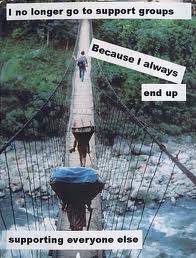
These secrets and confessions were now public and anonymous. The whole exhibit was therapeutic and genius; the people on the floor were being creative. Who could pass up an opportunity such as this?
The first collection of Postcard Secrets was published into “Postsecrets: Extraordinary Confessions from Ordinary Lives” by Frank Warren in November, 2005. This began as a simple traveling exhibit that blossomed into four books; a postsecrets.com website; and a posting of the best weekly on their web page called Sunday Secrets. To this day, secret keepers still mail postcards to Mr. Warren’s home in Greenbelt, MD. His aim is to elicit feeling; get people talking; (Powell, 2010) and create an outlet for people to confess. There is a blog page where secrets are twittered and emailed 24 hours a day, 7 days a week. Postssecrets mail is sent to update those on its mailing list. (PostSecret, 2011)
Another internet site, tellingsecrets.org, Anonymous writers use a proxy server to tell their secrets. The website owner assures no links to the author, as the time and date are hidden. Posts are entered and viewed on the website randomly; it could be hours or weeks since the author wrote that particular secret, there is nothing to link the author with the secret. (Ben, 2011) Anonymous posting seems to do the trick like the real revelation, without the benefit of professional help. It is my belief that people who find ways to these anonymous posting sites can also find the myriad ways to self-help materials. Now which is better? That subject remains for further study. Besides, there is some satisfaction in knowing that in revealing a secret anonymously, another is created.
Secrets are complicated. They are born in the dark, concealed, and hidden. They can affect the human body both psychologically and physically. Only by facing them and somehow bringing them out of the shadows, can a person be free of their disabling influence. A great decision process will yield the best avenue for telling the secret to a known or anonymous audience. Once a secret is revealed, it takes on a life of its own. That secret you were holding, is it heavier now? What will you do with it? Who will you tell? Who do you trust? Before you answer that, Samuel Johnson once said, “The vanity of being known to be trusted with a secret is generally one of the chief motives to disclose it.” (Brainy Quotes, 2011).
References
Ben or Anonymous (2011) Tellling Secrets, Retrieved on October, 29,2011 at http://tellingsecrets.org/
Caughlin, J., Afifi, W., Carpenter-Theune, K., & Miller, L., (2005). Reasons for, and consequences of, revealing personal secrets in close relationships: A longitudinal study. Personal Relationships, 12(1), 43-59. doi:10.1111/j.1350-4126.2005.00101.x
Farber, B. A., Khurgin-Bott, R., & Feldman, S. (2009). The benefits and risks of patient self-disclosure in the psychotherapy of women with a history of childhood sexual abuse. Psychotherapy: Theory, Research, Practice, Training, 46(1), 52-67. doi:10.1037/a0015136
Jaffe, E. (July, 2006) The Science Behind Secrets. Observer, Association for Psychological Science. Retrieved 5 November 2011 from http://www.psychologicalscience.org/observer/getArticle.cfm?id=2015
Kelly, A. E. (1999). Revealing Personal Secrets. Current Directions in Psychological Science (Wiley-Blackwell; Aug99, Vol. 8 Issue 4, p105-109, Retrieved 13 October 2011 from EBSCOhost.
Marks, K. (2011).Survey: “Do you want to know a Secret?” posted in www.hubpages.com forum on October 20, 2011 Retrieved on October 28, 2011 http://hubpages.com/forum/topic/85259#post1829072
NIMH, (2011) Depression, National Institute of Mental Health Booklet, Online Retrieved on November 4, 2011 http://www.nimh.nih.gov/health/publications/depression/complete-index.shtml
Pachankis, J. E. (2007). The psychological implications of concealing a stigma: A cognitive-affective-behavioral model. Psychological Bulletin, 133(2), 328-345. Retrieved on October 28, 2011
PostSecret, (October 30,2011), Postsecrets, Retrieved on October 30.2011 at http://www.postsecret.com/
Rada, J. (2011), U.S. Government Security Clearance Requirements, eHow Retrieved on November 7, 2011 at http://www.ehow.com/about_5110258_government-security-clearance-requirements.html
Warren, F. (2007) A Lifetime of Secrets Harper Collins Publishers New York, NY








